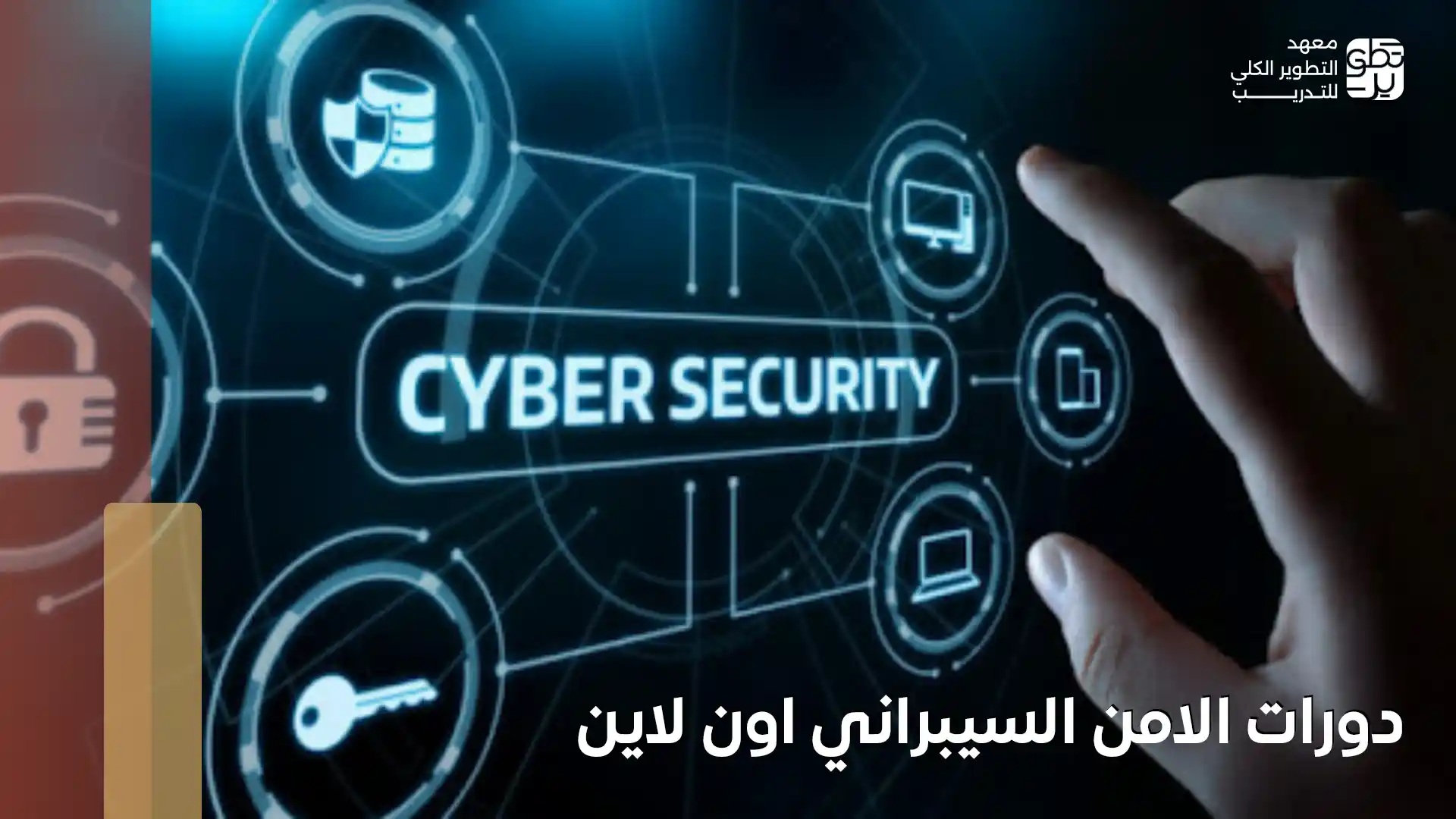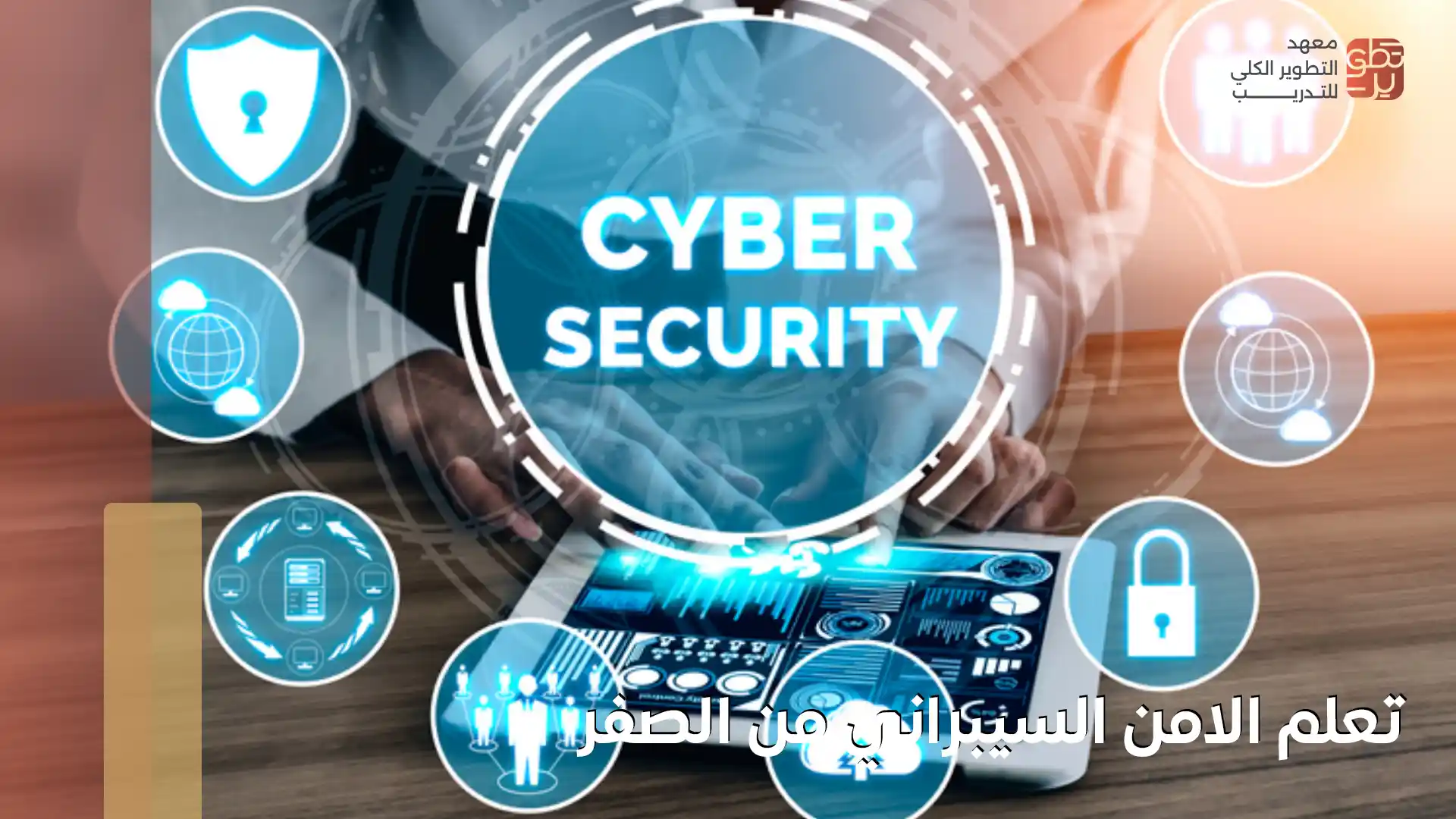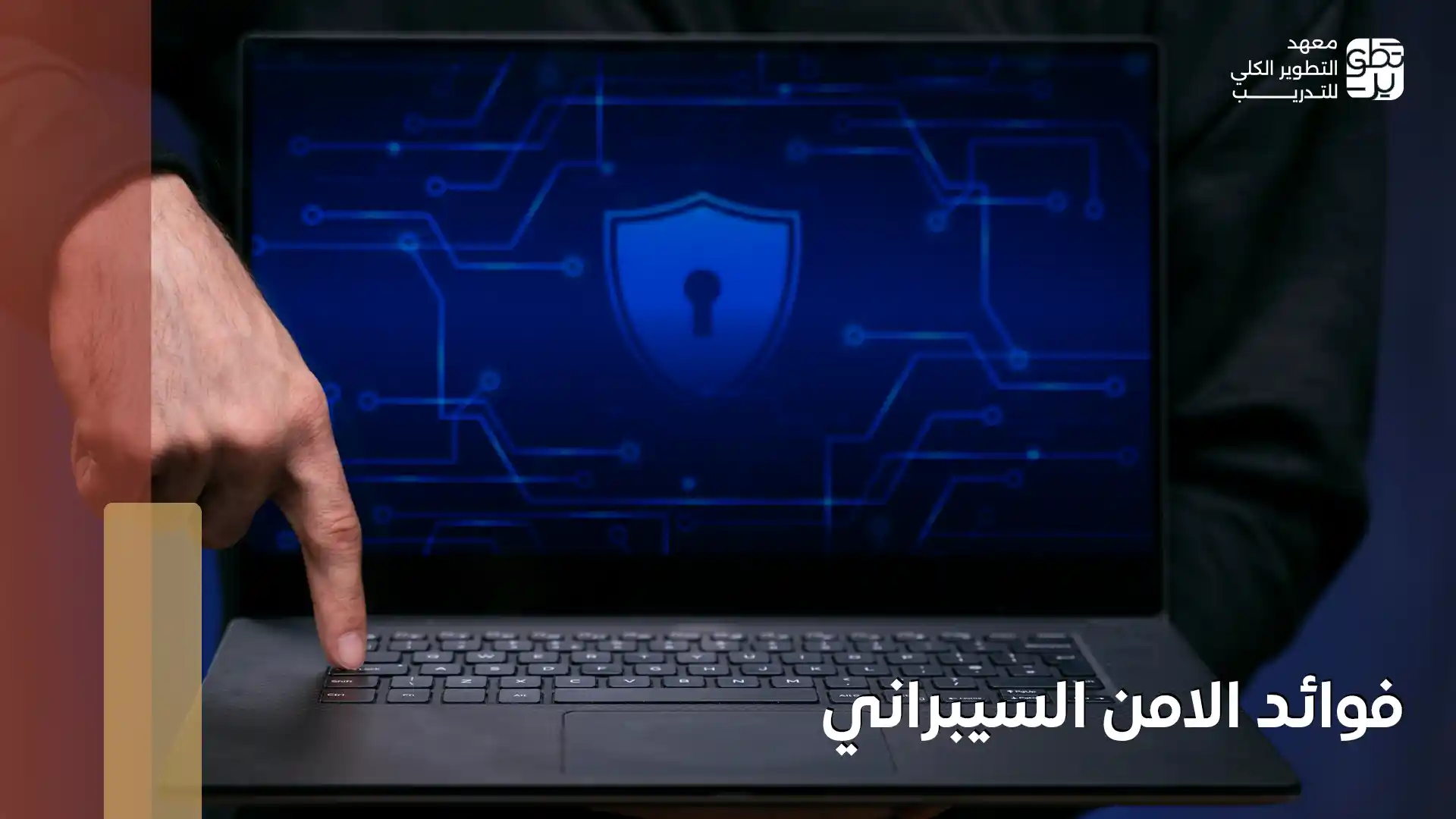
The need to protect data and digital systems from threats has never been more urgent. This is where online cybersecurity courses come in, offering the ability to learn essential skills without being restricted by time or location. In this article, we will explore the importance of online cybersecurity courses, the skills you can gain, how to choose the right course, and why Macro Development Institute for Training excels in this field.
If you’re considering entering the world of digital protection, keep reading to discover the right path forward.
Online Cybersecurity Courses
Online cybersecurity courses are among the most important educational programs in the digital age, designed to equip trainees with the knowledge and skills needed to protect data and systems from cyberattacks and digital threats. These courses offer comprehensive content covering various areas such as network security, risk management, vulnerability analysis, and incident response.
Online cybersecurity courses are also known for their flexibility, allowing learners to study remotely at their own pace and convenience, while earning accredited certificates that enhance their career prospects in a field with rapidly growing demand for cybersecurity professionals.
Start today with MDIT and enroll in one of the online cybersecurity courses to become part of the next generation of information security experts — don’t miss this opportunity!
Why Choose Macro Development Institute for Training for Online Cybersecurity Courses?
If you're looking for a comprehensive training program in cybersecurity that combines quality and flexibility, here’s why Macro Development Institute for Training is one of the best choices available:
- The institute offers a certified training program covering both fundamental and advanced cybersecurity concepts, with a focus on practical application.
- The training staff has real-world experience, making the content more relevant to the actual challenges in the workplace.
- The e-learning system allows students to access lectures at any time and from any place, with perpetual access to recorded content.
- The program includes tests and practical exercises that simulate real-world scenarios, making it easier to understand and reinforce key concepts.
- Students receive a certified certificate upon completion of the course, enhancing their chances of landing jobs in the cybersecurity field.
- The course content is tailored to meet the demands of the Saudi and Gulf markets, making it ideal for those seeking local job opportunities.
- The institute provides ongoing technical and advisory support throughout the course, continuing to assist after completion to ensure full benefit.
- Macro Development Institute for Training offers a flexible, certified educational experience that’s designed to directly address job market needs. If you're interested in preparing for a career in cybersecurity, this is where you should start.
Why are Accredited Cybersecurity Courses Important?
Cybersecurity is the field focused on protecting systems, networks, and data from digital threats and attacks, making it one of the key pillars of a secure digital environment.
Accredited cybersecurity courses, whether online or in-person, are an effective tool for building real-world expertise in this area. Here are the key reasons why these courses are so important:
- Enhanced employment opportunities: Most companies require applicants to have accredited certifications to prove their competence in handling digital security systems.
- These courses use specialized curriculums that cover real-world scenarios and practical exercises to tackle actual threats.
- Earning an accredited certificate shows your commitment to professional development and readiness to handle digital security responsibilities.
- You stay up-to-date with technological advancements, as accredited courses regularly update their content to reflect the latest techniques and tools in cybersecurity.
- You gain the ability to work across multiple sectors, as the demand for cybersecurity specialists spans industries such as banking, telecommunications, healthcare, oil, and education.
If you’re looking for accredited cybersecurity courses, Macro Development Institute for Training offers high-quality online cybersecurity training with professional content and expert instructors.
Cybersecurity Course Topics
The goal of a cybersecurity course is to provide participants with the knowledge and skills necessary to protect systems and networks from increasing digital threats. The course covers several key areas, ranging from basic concepts to advanced protection techniques. Below are the main topics typically included in a cybersecurity course:
|
Topic |
Content |
|
Introduction to Cybersecurity |
|
|
Cyber Threats and Attacks |
|
|
Risk Management in Cybersecurity |
|
|
Network Security |
|
|
Application Security |
|
|
Data Protection |
|
|
Incident Response Management |
|
|
Legislation and Compliance |
|
|
Penetration Testing |
|
|
Identity and Access Management (IAM) |
|
|
Cloud Security |
|
|
Internet of Things (IoT) Security |
|
The cybersecurity course is an essential training opportunity to stay ahead of the increasing digital threats. By diving deep into these topics, participants can gain the knowledge and skills needed to protect systems and networks effectively.
Benefits of Online Cybersecurity Courses
As digital threats continue to rise, the need for cybersecurity courses has never been greater, especially when they are available online. These specialized programs offer a balance of theoretical knowledge and practical application, providing participants with a solid foundation for success in this critical field. Here are the main benefits:
- Flexible online learning, allowing trainees to learn from anywhere at any time.
- Updated training materials covering the latest threats and technologies in cybersecurity.
- Courses from certified institutions, ensuring the credentials you earn are valued in the job market.
- Trainers with real-world experience and professional certifications.
- Practical training through cyberattack simulations and vulnerability analysis.
- Direct interaction with trainers through virtual sessions and open discussions.
- Preparation for global professional certifications in cybersecurity.
- Customizable learning paths for beginners and professionals.
- Opportunities to build essential skills for technical roles in both government and private sectors.
- Networking opportunities with a specialized cybersecurity community both locally and globally.
Macro Development Institute for Training offers online cybersecurity courses with practical content and experienced instructors, making it a trusted choice for those looking to build a career in this field.
Key Skills Gained from Online Cybersecurity Courses
Online cybersecurity courses provide a practical opportunity to acquire a set of essential skills that are a must-have in the digital job market. Here are some of the skills you will gain:
- Understanding cybersecurity fundamentals: Learn the basic concepts of data protection and digital infrastructure, including systems, networks, and software.
- Identifying and addressing vulnerabilities: Gain skills in analyzing threats, identifying potential weaknesses in systems, and learning prevention techniques.
- Applying the latest security techniques: Learn about tools and techniques used to defend against cyberattacks, such as intrusion detection systems and encryption.
- Creating effective security policies: Design and implement policies to protect data and ensure business continuity.
- Incident response: Learn how to respond to attacks, mitigate losses, and quickly restore data and systems.
- Security awareness: Educate employees and colleagues on best practices for personal and organizational protection.
Upon completing this training journey, Macro Development Institute for Training provides updated, certified content with expert trainers and courses designed to meet market needs, giving you a strong start in cybersecurity.
How to Choose the Right Cybersecurity Course for You?
Choosing the right cybersecurity course—whether online or in-person—requires clear goals and an understanding of your current skill level. Here are the steps to help you make the right decision:
- Assess your current knowledge in the field, whether you’re a beginner or have prior experience.
- Decide on the professional path you want, such as risk analysis or ethical hacking.
- Review the course content to ensure it covers the topics you need to improve your skills.
- Choose a certified course that provides a recognized certificate in the job market.
- Check the trainers’ credentials and ensure they have real-world experience in cybersecurity.
- Select a course that offers various learning tools, such as recorded lectures and interactive quizzes.
- Compare multiple courses to evaluate the benefits, costs, and scheduling flexibility.
Macro Development Institute for Training offers comprehensive online cybersecurity courses with professional trainers, making it an effective choice for starting or advancing your career in this field.
Steps to Register for Cybersecurity Courses
Specialized courses in cybersecurity provide an opportunity to enhance skills and prepare for security challenges. If you want to specialize or expand in this field, here’s how to register:
- Choose the right training platform: Start by choosing a reliable platform, like Macro Development Institute for Training, which offers accredited cybersecurity courses.
- Visit the website: After selecting the platform, visit its website.
- Create an account and log in: You’ll need to create a new account, enter your email, and set a password. Confirm your account via email.
- Choose the right course: Look for courses that match your needs, whether you're a beginner or have experience. Options range from "Cybersecurity Basics" to more specialized courses like "Ethical Hacking" or "Digital Forensics."
- Register for the course: Once you’ve selected the course, click on the registration button. If it’s a paid course, complete the payment. If it’s free, you can start immediately after registration.
- Start studying: After registration, you can begin lessons right away. Most courses offer interactive learning materials, quizzes, and practical exercises to help you develop necessary cybersecurity skills.
Cybersecurity is a vital field that continues to grow in importance as digital threats increase. By enrolling in specialized courses, you can build a strong knowledge base and gain the skills needed to keep up with the latest developments in this field. Now is the time to start your cybersecurity learning journey and enhance your skills.
Cybersecurity Jobs
With increasing cyber threats around the world, cybersecurity has become one of the most sought-after fields in the job market. It requires specialists who can protect data and networks from cyberattacks and provide secure solutions for organizations. Here are some of the top jobs in cybersecurity and their specific requirements:
|
Job Title |
Responsibilities |
Requirements |
|
Cybersecurity Specialist |
|
|
|
Network Security Analyst |
|
|
|
Information Security Engineer |
|
|
|
Penetration Testing Specialist |
|
|
|
Information Security Manager |
|
|
|
Incident Response Analyst |
|
|
|
Cryptography Engineer |
|
|
|
Application Security Analyst |
|
|
Cybersecurity jobs are among the most diverse and in-demand in the job market today. With increasing reliance on technology across industries, the need for cybersecurity experts will continue to grow. If you're interested in this field, there are plenty of opportunities to develop your skills and work in a variety of roles, both technical and managerial.
Finally, whether you’re an employer, employee, or student preparing for the future, online cybersecurity courses provide the skills needed to protect yourself and your organization from growing threats. With varied content and easy access, there’s no excuse to delay. Join Macro Development Institute for Training now and start your journey into the world of cybersecurity with confident steps based on solid knowledge.
Frequently Asked Questions
What is meant by online cybersecurity courses?
These are training programs offered online, aimed at teaching individuals the basics and methods of protecting digital systems from cyberattacks. They are among the most requested "online cybersecurity courses" due to their flexibility and specialization.
Are these courses suitable for individuals without a technical background?
Yes, there are introductory courses designed for beginners, focusing on building the basics before moving on to advanced concepts.




